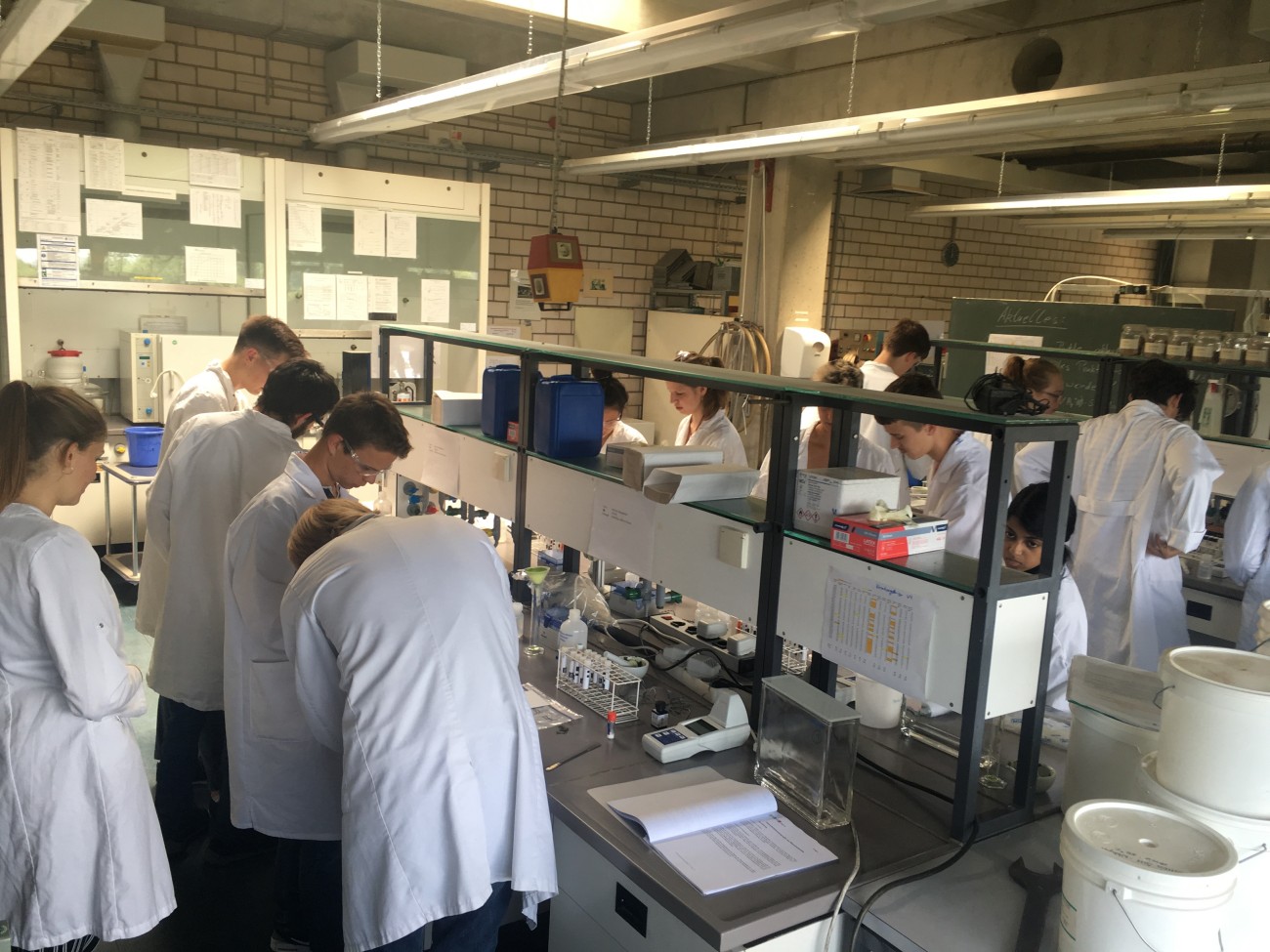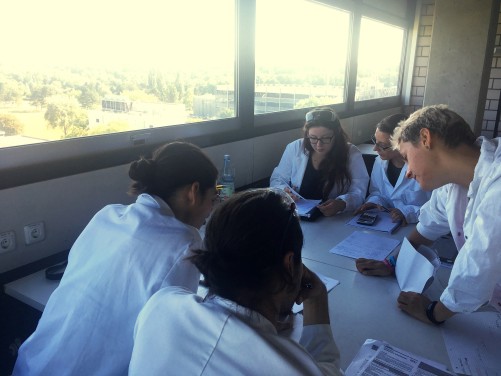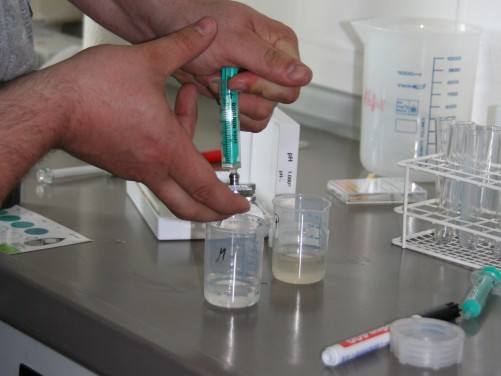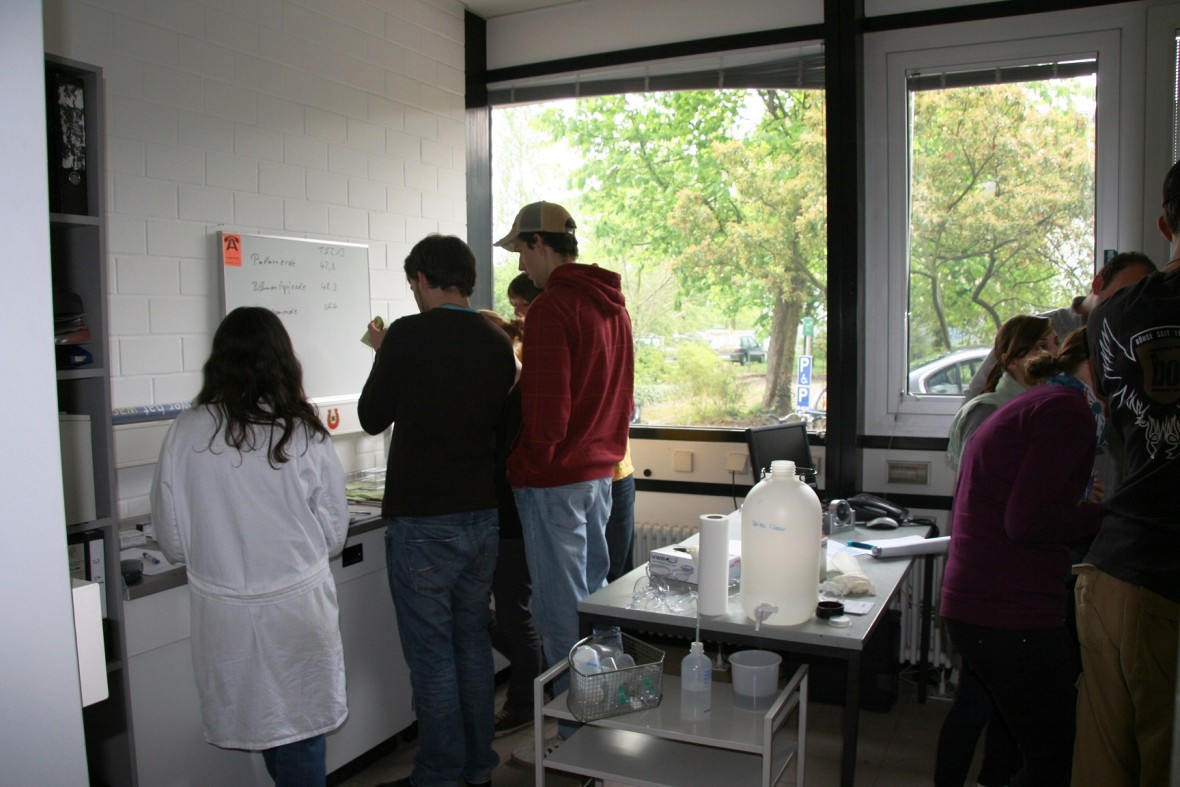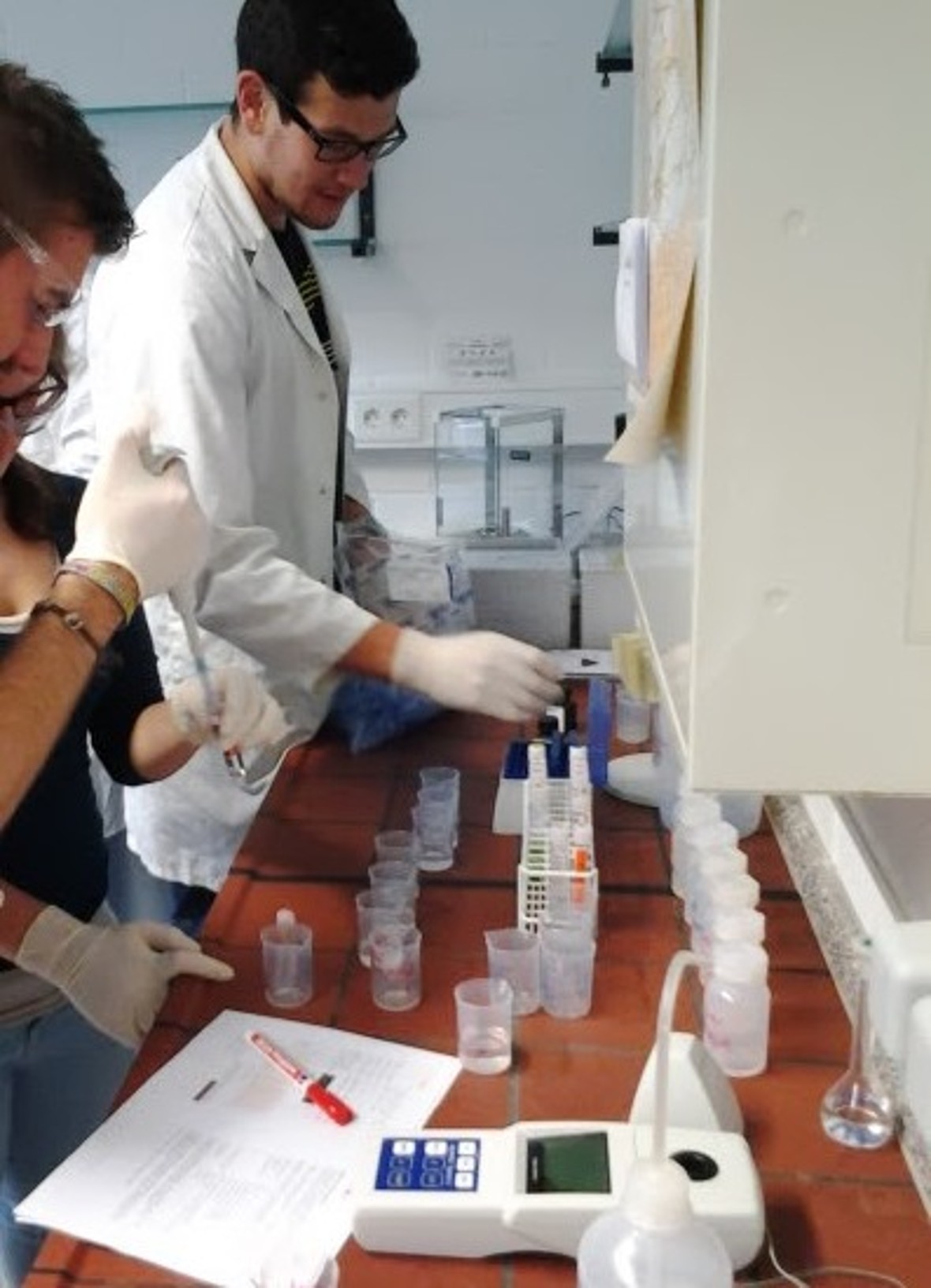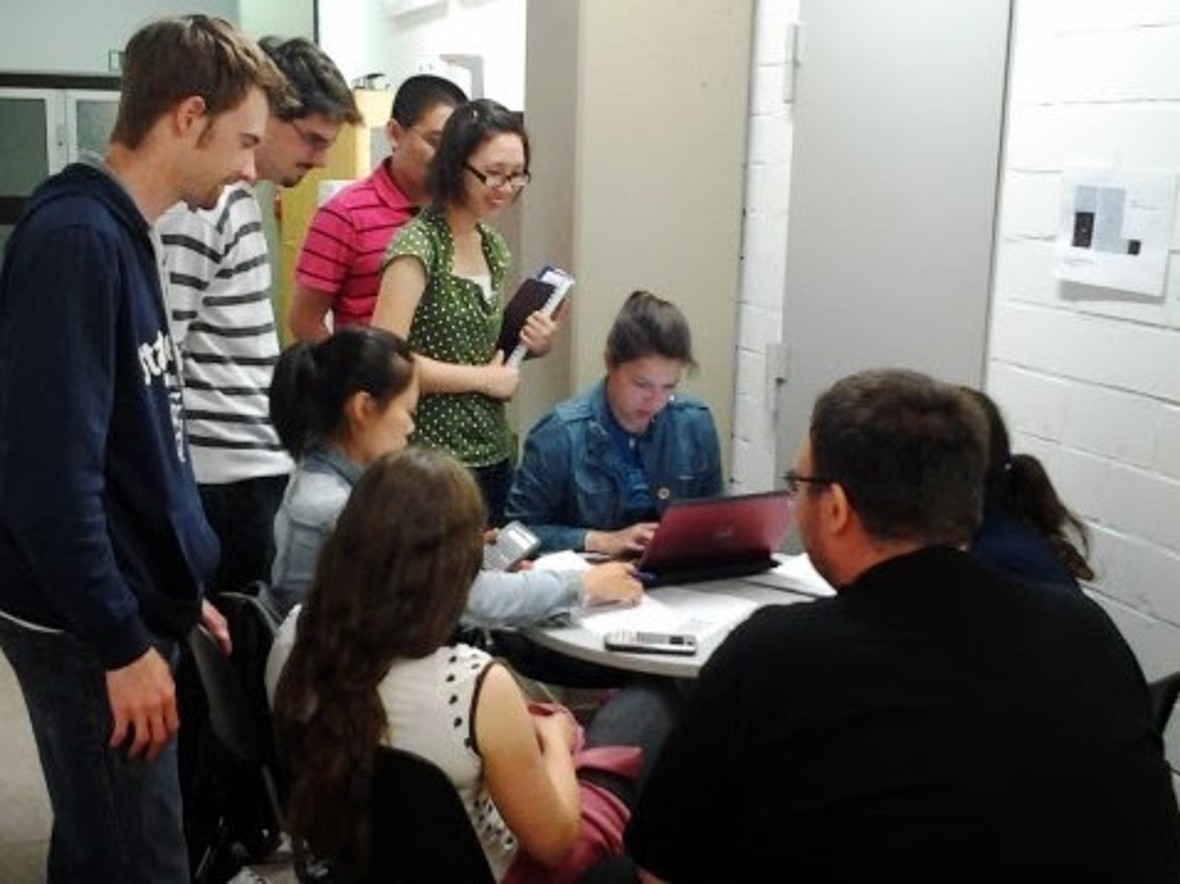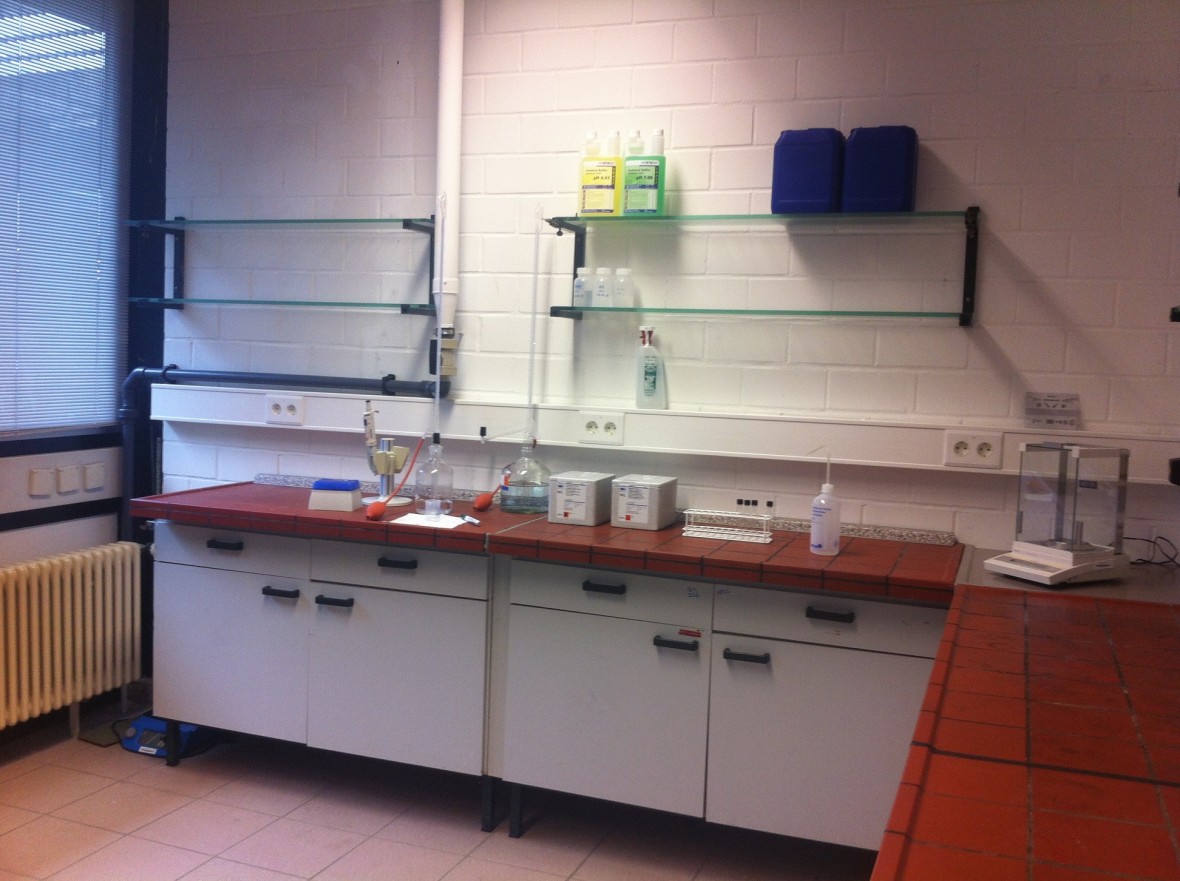In the new teaching laboratory, twelve students can be supervised simultaneously in groups of two by trained tutors. The students start with a short test before the beginning of the experiment. Afterwards they discuss their self-created schedule for the planned experiments with their tutor. The tutors will be available for questions and explanations during the test. This way, in addition to ensuring that the experiments are carried out correctly, the scientific exchange on specialist topics is stimulated already in the first semesters.
Teaching Laboratory Management
| Name | Contact | |
|---|---|---|
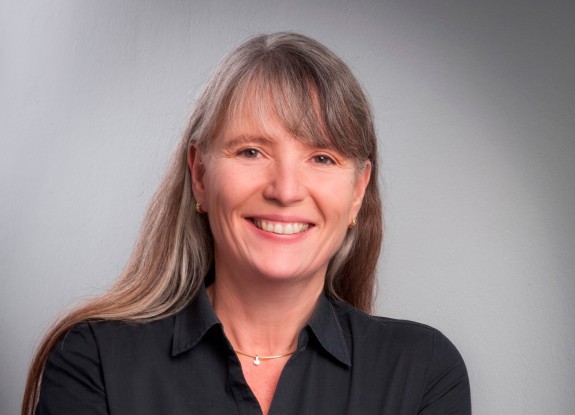
| Dr. rer. nat. Christiane Brockmann | C.Brockmann@iwar.tu-... +49 6151 16-20722 L5/01 505a |
Team
| Name | Contact | |
|---|---|---|
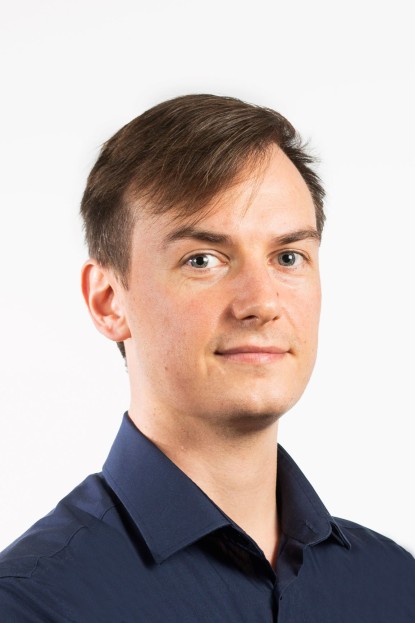
| Dominik Dörder M.Sc. |
History
In the summer semester of 2010, the IWAR Institute set up a teaching laboratory for the first time to improve teaching in the newly established environmental engineering degree course.
Students of the second and fourth semesters can carry out practical laboratory experiments under professional supervision in addition to their theoretical courses. The students examine water, soil and compost samples with the aid of rapid analytical methods (colorimetry, photometry, titrimetry) as well as simple instrumental laboratory methods and learn the professional evaluation of the results.
Directly in front of the teaching laboratory, workstations were set up for joint evaluation. A newly installed WLAN hotspot made it possible to carry out online test and use the accompanying moodle online courses on site. In the summer semester of 2013, the teaching laboratory was able to move to a new, much larger room which enables up to eight students and two tutors to work at the same time.
Due to the lager room capacity, students of additional IWAR-courses have the opportunity to work on current measurements using both the GC-MS and HPLC since summer semester 2013. From winter semester 2014/2015 on, the additional procurement of an UV spectrometer enabled the chair to offer the course “Instrumental Analytics”. In this elective course, the participants will learn about the structure, functionality and measuring principle of common instrumental-analytical methods and test possibilities and limitations in practical application.

